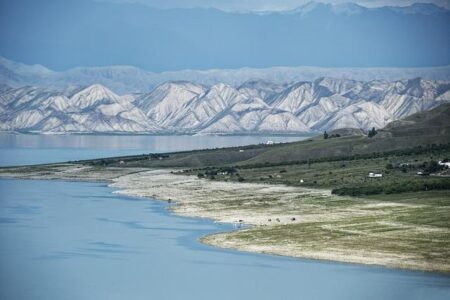Spain experienced its hottest summer on record this year, as soaring temperatures and prolonged heatwaves swept across the country, raising concerns about climate change and public health. From blistering heat in major cities to drought conditions affecting agriculture, the unprecedented weather has challenged infrastructure and emergency services nationwide. This report delves into the key impacts of Spain’s historic summer heat, the responses from authorities, and what it signals for the future amid growing global temperature trends.
Spain Faces Historic Heatwave Impacting Public Health and Infrastructure
Spain has endured an unprecedented surge in temperatures this summer, with mercury levels soaring well beyond historical averages. The relentless heatwave has not only strained the nation’s energy grids but has also prompted widespread health warnings, especially for vulnerable populations such as the elderly and children. Hospitals reported a significant uptick in heat-related illnesses, including heatstroke and dehydration, overwhelming emergency services in several major cities. In response, local governments have initiated cooling centers and distributed hydration kits while urging residents to minimize outdoor activities during peak afternoon heat.
Infrastructure across the country has also suffered severe impacts. Roads have cracked under the intense heat, and rail services faced disruptions due to track deformations, affecting commuter schedules. Agricultural sectors are experiencing considerable losses as crops wilt under prolonged drought conditions, threatening food supply chains. The table below summarizes some immediate consequences:
| Sector | Impact | Response |
|---|---|---|
| Health | +30% Heat-related ER visits | Cooling centers, hydration kits |
| Transportation | Rail delays, cracked roads | Speed restrictions, repairs underway |
| Agriculture | Crop failures, drought stress | Emergency water allocations |
- Power consumption has increased by 25%, pushing utilities to the limit.
- Forest fire risk remains critical, with multiple alerts issued nationwide.
- Public advisories stress hydration, sun protection, and avoiding strenuous activity.
Experts Warn of Long-Term Climate Risks Amid Rising Temperatures
Climatologists caution that the recent unprecedented heatwave battering Spain is a stark signal of deeper, more enduring threats posed by global warming. The relentless rise in temperatures not only disrupts ecosystems but also escalates risks to human health, agriculture, and infrastructure across Southern Europe and beyond. Experts emphasize that these conditions could become the new norm unless decisive action is taken at international levels to reduce greenhouse gas emissions.
Among the critical concerns raised, scientists highlight:
- Increased frequency of extreme heat events leading to widespread drought and diminished water resources.
- Heightened vulnerability of crops such as olives and grapes, vital to the region’s economy and cultural heritage.
- Amplified risks of wildfires threatening biodiversity and human settlements.
- Strain on public health systems due to heat-related illnesses, especially affecting the elderly and marginalized communities.
| Year | Average Summer Temp (°C) | Wildfire Incidents | Crop Yield Reduction (%) |
|---|---|---|---|
| 2015 | 31.4 | 450 | 12 |
| 2019 | 32.1 | 530 | 18 |
| 2023 | 34.6 | 720 | 27 |
Authorities Urge Immediate Water Conservation and Heat Safety Measures
In response to unprecedented temperatures, officials across Spain have called on residents to adopt urgent water conservation practices to prevent shortages and protect vulnerable communities. Water authorities recommend simple yet effective steps such as:
- Limiting outdoor water use: avoiding non-essential irrigation, car washing, and pool refilling.
- Fixing leaks promptly: ensuring all taps and pipes are leak-free to avert wastage.
- Using water-efficient appliances: opting for low-flow showerheads and toilets to reduce household consumption.
Alongside water-saving measures, public health officials emphasize the importance of heat safety – especially for the elderly, children, and outdoor workers. Recommended precautions include seeking shade during peak heat hours, staying hydrated with non-alcoholic fluids, and wearing breathable, light-colored clothing. The government has also deployed cooling centers to provide refuge and distributed educational materials on heatstroke prevention.
| Recommended Action | Target Group | Expected Benefit |
|---|---|---|
| Limit Outdoor Water Use | General Public | Reduce overall water demand |
| Visit Cooling Centers | Vulnerable Populations | Prevent heat-related illnesses |
| Hydration Reminders | Outdoor Workers | Maintain physical wellbeing |
To Conclude
As Spain grapples with the aftermath of its hottest summer ever recorded, the impact of rising global temperatures becomes increasingly evident. Authorities continue to monitor weather patterns closely, urging residents and visitors alike to take precautions amid ongoing heatwaves. This historic heat serves as a stark reminder of the urgent need for comprehensive climate action both domestically and worldwide.




